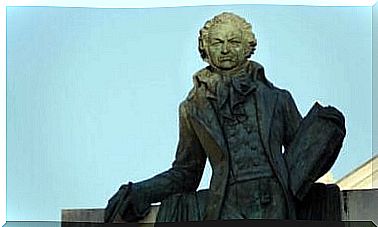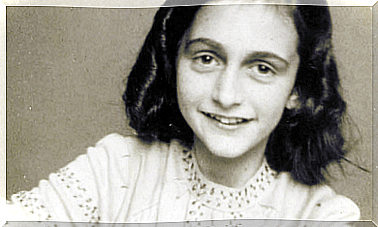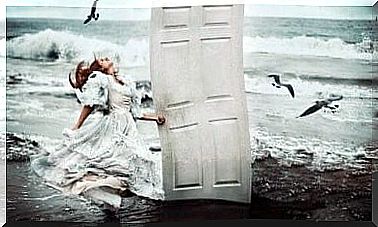Julio Cortázar, Master Of The Fantastic Tale
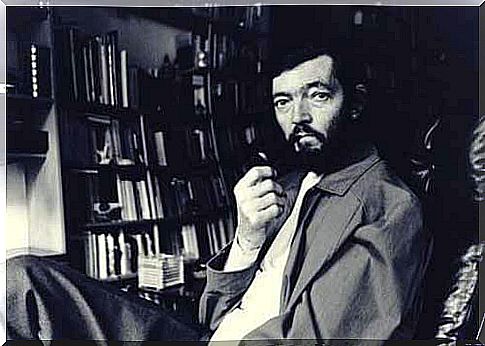
Julio Cortázar was a wonderful storyteller. If you’ve had the chance to read his The Game of the World , we’re sure you’ll agree with us calling it moving. Above all, this author teaches us to understand that even daily life hides a special, magical and unpredictable side. Few voices in Spanish-American literature have had the ability to emerge with such force to inspire entire generations.
Even today, in fact, Julio Cortázar is seen as one of the most important innovators in the art of writing. Although in narrative terms it is very difficult to bring something new.
Flawless when it came to shaping a story with absolutely exquisite poetic prose. Through his often surreal style, he was able to show the lights and shadows of everyday life, exacerbating aspects that are often rough, but also inspiring. His Bestiary , for example, is still considered a masterpiece that resists the passage of time and wins the admiration of even the youngest.
His bibliography is immense. He has left us numerous short stories, novels, essays, poems, plays … He has been able to give new impetus to the literary discourse while remaining faithful, at all times, to his ideals. Julio Cortázar even went so far as to acquire French nationality in protest against the military government of his country, Argentina.
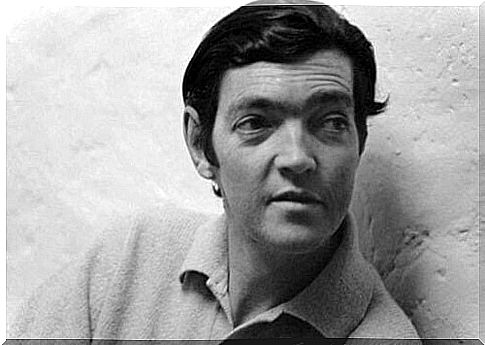
Biography of Julio Cortázar
Julio Cortázar was born in Belgium in 1914, coinciding with the beginning of World War II. His family, of Argentine origin, remained for several years in Europe for the work of his father, Argentine ambassador to the Belgian country.
Only at the age of five, little Julio discovers his parents’ land for the first time. The second country that, like France, would have marked his personal life as well as his literary one.
A man of letters
He spent his early youth and trained in Argentina. He attended university and for a few years worked as a teacher in small towns. However, in 1951 he returned to Paris, the city he had most in his heart. Thanks to a scholarship, he was able to return to Europe, later agreeing to stop and work as a translator for UNESCO. In parallel, his literary work continued.
Before leaving Buenos Aires, however, Julio Cortázar had already published some more than relevant works, such as his famous Bestiary . And he had collaborated with numerous magazines such as Reality and Los Anales de Buenos Aires , directed by Jorge Luis Borges.
But it wasn’t until the 1960s that his name began to become popular. Cortázar became a reference in the universe of Latin American literature. His name was increasingly associated with figures such as Gabriel García Márquez, Juan Rulfo, Mario Vargas Llosa, Mario Benedetti and Jorge Luis Borges himself became one of his most loyal supporters.
He impressed audiences and critics alike thanks to a sensitive and innovative style and to his great social conscience, which brought him closer to the marginalized classes.
The social activist Cortázar
Julio Cortázar never represented the classic discreet and introverted intellectual. In his youth, he participated in numerous demonstrations against Peronism. However, his activism became more energetic and confident as he began to gain notoriety. Until then, he let his works speak in his name, taking a more cautious attitude.
Books like The Other Shore or the Occupied House tale symbolized those tumultuous times that Argentina was going through at that time. But when he becomes a public figure, Cortázar understands the important chance he has at his disposal. He goes to Cuba to meet Fidel Castro, witnesses the proclamation of Chilean President Salvador Allende and does not hesitate to support the Sandinista movement in Nicaragua.
Suddenly he becomes a vengeful writer who inspires thousands of people and who also tries to defend human rights. He lectures and publishes noteworthy works such as Dossier Chile: the black book , in which he speaks openly about the Pinochet regime. It should be noted that his activism was not appreciated by the Argentine government, to the point that he was even spied on by the secret services.
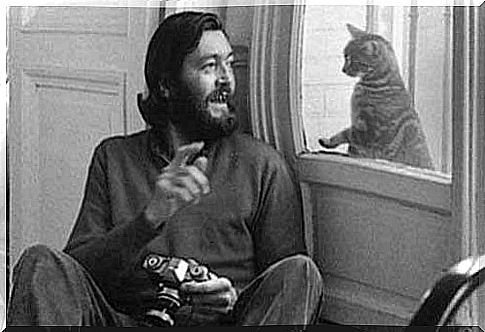
The pressure (and even the persecution) is such that Julio Cortázar is forced to apply for French nationality, moving permanently to Paris. Here he would have lived his last years until, at the age of 69, he lost his battle against leukemia.
The game of the world , an indisputable literary treasure
Only the publication of The Game of the World in 1963 is capable of being so powerful as to represent a point of no return in Spanish-American literature. With this work Cortázar something never seen before.
His narrative skills, to renew linguistic conventions, the technical and stylistic universe, as well as the plot, open the door to a new genre of which he is the only master.
Structure
Anyone who knows The Game of the World will know that there are two ways to dive into its pages. You will be able to follow the “ordinary” way, that is, to read chapters 1 to 56. Otherwise, you will have the opportunity to read it in an absolutely different way, following the suggested directions.
In this case, you will open the book to chapter 73 in the order indicated in each chapter. In any case, it is advisable to do it both ways to participate in this game, in this literary revelation with which to illuminate perspectives and play with realities.
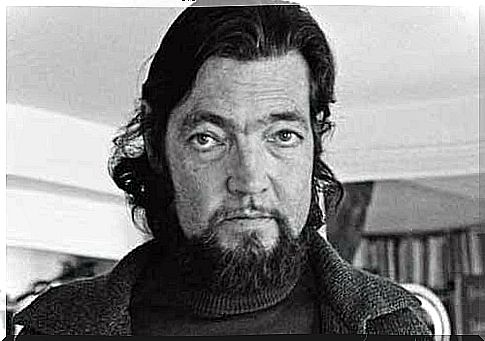
Style
The game of the world is written in poetic prose. One of the author’s goals was not just to surprise readers with its innovative structure. The ultimate goal is to make the reader think, showing him how history can be rewritten, distorted and even destroyed.
Cortázar escapes from conventional language to enter the most emotional part of the human mind. And it does so through word games, punctuation changes, use of neologisms. He wants to invent, build a different world. And it does so by drawing from metaphysics, from mystery. His literature is the result of a skilful fusion of luminous poetic prose but surrounded by fiction, fantastic creation, magic to put it simply.
Subject
The protagonist of the book is Horacio Oliveira. He is an intellectual character, decidedly cold and endowed with a fervent analytical spirit. After all, he is a man in crisis who represents a good part of the population. Her world changes when, suddenly, she finds another unforgettable being in the literary world: the Sorceress.
It is a pure, emotional, spontaneous and unconventional person. It contains the essence of the surrealism that Cortázar nourished on French soil.
This character alone challenges the whole of society. Unlike Oliveira, he is an exceptional, yet primitive being, who longs to have the gift of the word while intellectuals envy his intuition, his magic and simplicity.
The game of the world essentially symbolizes the two spheres of our society: one intellectual and emotional, the other rigid and revolutionary. A meeting-clash between existentialism and conventionalism. Few books are so perfect for challenging the human mind and inducing us to think of a reality where time never seems to pass.




